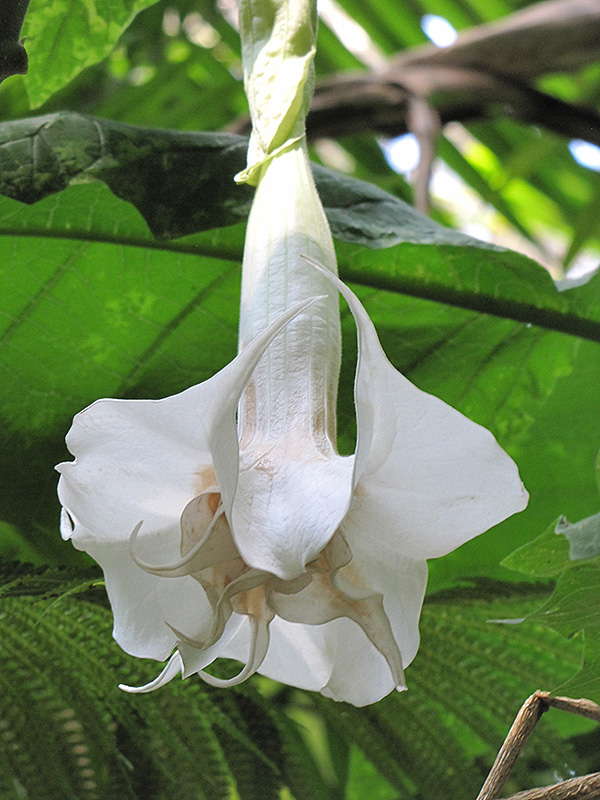Double White Angel’s Trumpet
Description
A heat loving variety that likes warm days and cool nights; large, dangling, double white trumpets from summer into fall; flowers are only fragrant at night; perfect for containers, beds, and borders for a stunning presentation all season
Landscape Attributes
Double White Angel's Trumpet is a multi-stemmed annual with an upright spreading habit of growth. Its wonderfully bold, coarse texture can be very effective in a balanced garden composition.
Double White Angel's Trumpet is recommended for the following landscape applications;
Planting & Growing
Double White Angel's Trumpet will grow to be about 15 feet tall at maturity, with a spread of 12 feet. It has a low canopy with a typical clearance of 2 feet from the ground. Although it's not a true annual, this fast-growing plant can be expected to behave as an annual in our climate if left outdoors over the winter, usually needing replacement the following year. As such, gardeners should take into consideration that it will perform differently than it would in its native habitat.
This plant does best in full sun to partial shade. It does best in average to evenly moist conditions, but will not tolerate standing water. It is not particular as to soil type or pH. It is highly tolerant of urban pollution and will even thrive in inner city environments. This particular variety is an interspecific hybrid, and parts of it are known to be toxic to humans and animals, so care should be exercised in planting it around children and pets.
Double White Angel's Trumpet is a fine choice for the garden, but it is also a good selection for planting in outdoor pots and containers. Its large size and upright habit of growth lend it for use as a solitary accent, or in a composition surrounded by smaller plants around the base and those that spill over the edges. It is even sizeable enough that it can be grown alone in a suitable container. Note that when growing plants in outdoor containers and baskets, they may require more frequent waterings than they would in the yard or garden.

